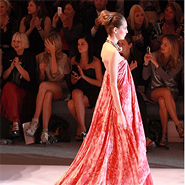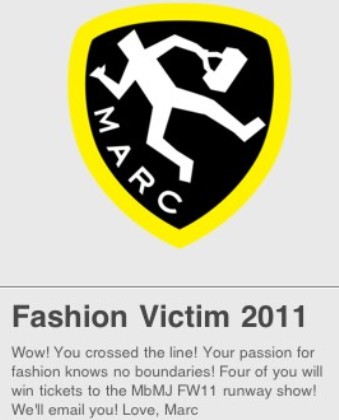
Mercedes-Benz Fashion Week used to be one of the most exclusive events in the world, but the world of fashion – and the event itself – has evolved so dramatically that more consumers can now attend. But is that necessarily a bad thing?
Luxury brands are starting to lift the velvet curtains to their shows and letting some of their most supportive fans and loyal consumers come inside their world. Rather than looking at it as popping the private Fashion Week bubble, engaging more consumers at the event could prove to be one of the most beneficial things that brands could do for themselves.
“It’s the Super Bowl of fashion,” said Laura Ries, president of the brand consulting firm Ries & Ries, Roswell, GA. “It takes place in the main capital of the world, and you get to see the top brands displaying their finest work.
“It used to be that the only people that could go were magazine editors and their friends and clients,” she said. “But for fashion and for the brands themselves, the more people that are interested in the event and go to it, the more that they will be interested in those brands and fashion in general.
“The Super Bowl isn’t less special because they let fans go to the game.”
Come on in
Luxury marketers have already begun to take liberties with deciding who their guests are, both in the stands and behind-the-scenes during Fashion Week.
Brands have started to use Foursquare as a way to court their most loyal consumers with meet-and-greets with designers and creative directors, branded products and invitations to after-parties and shows.
For example, Marc Jacobs is using Foursquare to encourage customers in-store.
When consumers enter a Marc Jacobs location and check-in to Foursquare, they can unlock the “Fashion Victim” badge, which enters them for a chance to win tickets to Fashion Week.

Marc Jacobs Fashion Victim badge
This tactic is brilliant because it not only woos consumers with a possibility of attending one of the most exciting fashion events in the world, but it drives them into retail locations, which will inevitably drive sales.
Additionally, brands such as Rebecca Minkoff, Prabal Gurung, Bergdorf Goodman and Michael Kors are using the eretailer and fashion community site Polyvore as a platform to engage with customers and bring them to Fashion Week.
Polyvore holds contests where its members can use pictures of models, fashion industry icons and luxury accessories and apparel to create different outfits, collages or styles on the Web site.
These contests add significant value to how customers view their favorite luxury brands, because consumers often get a chance to meet the designers and receive special perks, such as attending Fashion Week.
Furthermore, consumers' sense of brand awareness and knowledge of the products are increased because they get to look at and style them first-hand.
Even retailers such as Gilt Groupe are using Fashion Week as a chance to mingle with luxury consumers.
The eretailer’s subsidiary, Gilt City, is pairing up with brands such as Luca Luca to offer Gilt members VIP tickets to the brand’s show and access backstage on Feb. 10.
Gilt members can also buy $500 of store credit at Luca Luca’s Madison Avenue location in New York for $250, which is an obvious incentive to go there and buy products.
“We want to give Gilt City’s fashion-loving members an insider look at the glitz and glam of New York Fashion Week,” said Nate Richardson, president of Gilt City, New York. “Gilt City is taking what we know best, offering access to exclusive events and experiences, and using our digital platform to offer coveted entry to one of the world’s most watched weeks.”
A new cycle
The evolution of Fashion Week attendees does not mean that the event is any less special. But it does mean that brands should think about what having these consumers will mean for themselves.
Consumers that go to designers’ shows during this time are most likely the same people that would like to, and probably will, buy the clothes that they see during Fashion Week.
On the other hand, the customers that get to go to the shows by chance, like those being entered into a lottery after unlocking Marc Jacobs’ Fashion Victim badge, may not be able to afford designer clothes now, but most likely will be able to in the future. Therefore, the brand has already begun a relationship with a potential client.
Consumers that choose to go through sites like Gilt Groupe to buy their tickets to the shows can afford the steep prices, meaning that they can probably afford to buy luxury products anyway.
Therefore, luxury brands can benefit from letting consumers into the private Fashion Week world. Not only could it serve to drive sales, but it could also help to solidify relationships with future customers.
“It’s still exclusive, because the ones that are entering competitions and contests are still consumers that want to buy, and can afford to buy, the brands in the first place,” Ms. Ries said. “The Gilt tickets are up to $500, so it still caters to an exclusive crowd.
“Fashion week is evolving and becoming more accessible in general,” she said. “Some brands are going to be wary about letting people in to see their shows, but the price point will definitely still keep the crowds to a minimum.
“Why not give tickets at a set price to people who care about it, and will increase brand awareness by Tweeting and blogging and writing on Facebook about it, and will really be behind it?”
